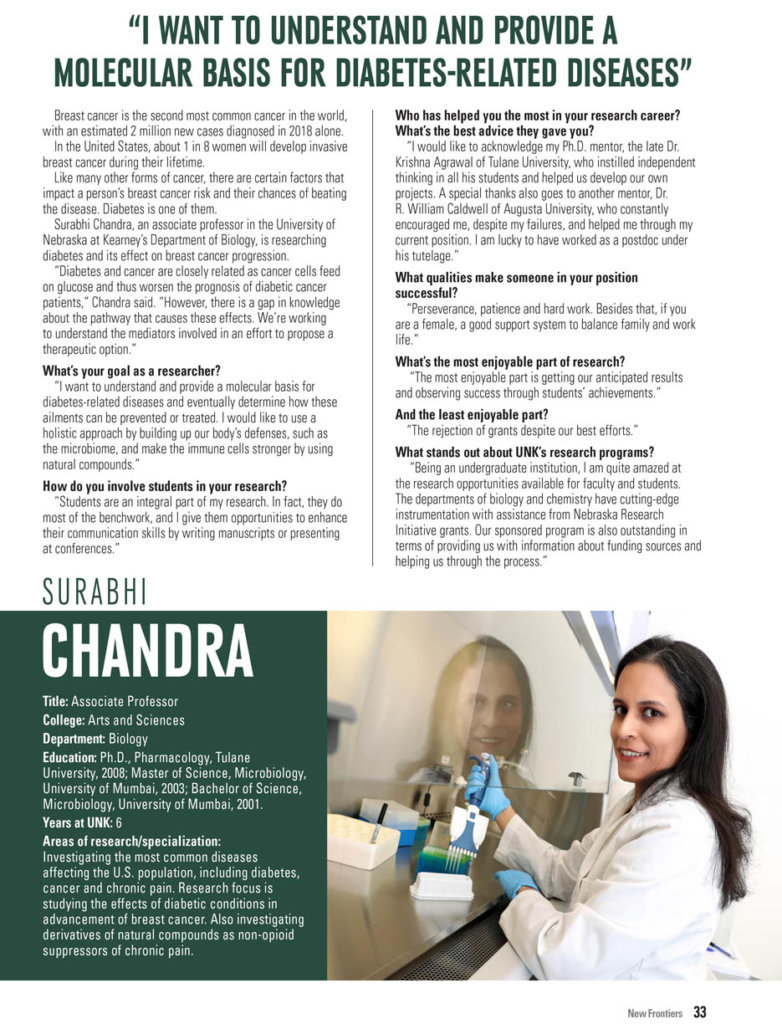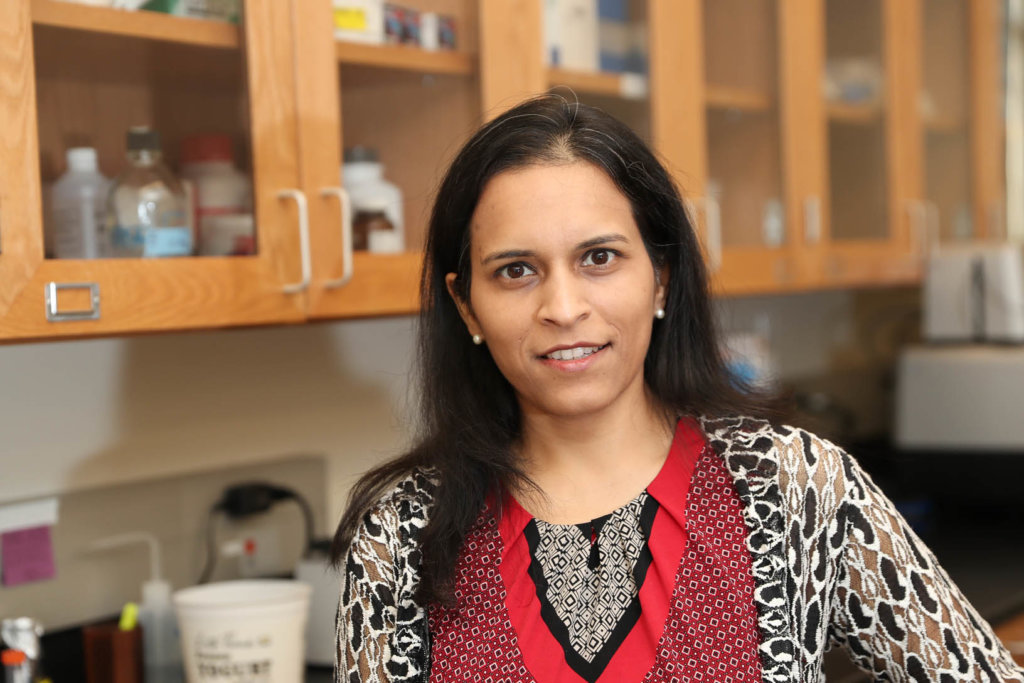
Breast cancer is the second most common cancer in the world, with an estimated 2 million new cases diagnosed in 2018 alone.
In the United States, about 1 in 8 women will develop invasive breast cancer during their lifetime.
Like many other forms of cancer, there are certain factors that impact a person’s breast cancer risk and their chances of beating the disease. Diabetes is one of them.
Surabhi Chandra, an associate professor in the University of Nebraska at Kearney’s Department of Biology, is researching diabetes and its effect on breast cancer progression.
“Diabetes and cancer are closely related as cancer cells feed on glucose and thus worsen the prognosis of diabetic cancer patients,” Chandra said. “However, there is a gap in knowledge about the pathway that causes these effects. We’re working to understand the mediators involved in an effort to propose a therapeutic option.”

What’s your goal as a researcher?
“I want to understand and provide a molecular basis for diabetes-related diseases and eventually determine how these ailments can be prevented or treated. I would like to use a holistic approach by building up our body’s defenses, such as the microbiome, and make the immune cells stronger by using natural compounds.”
How do you involve students in your research?
“Students are an integral part of my research. In fact, they do most of the benchwork, and I give them opportunities to enhance their communication skills by writing manuscripts or presenting at conferences.”
Who has helped you the most in your research career? What’s the best advice they gave you?
“I would like to acknowledge my Ph.D. mentor, the late Dr. Krishna Agrawal of Tulane University, who instilled independent thinking in all his students and helped us develop our own projects. A special thanks also goes to another mentor, Dr. R. William Caldwell of Augusta University, who constantly encouraged me, despite my failures, and helped me through my current position. I am lucky to have worked as a postdoc under his tutelage.”
What qualities make someone in your position successful?
“Perseverance, patience and hard work. Besides that, if you are a female, a good support system to balance family and work life.”
What’s the most enjoyable part of research?
“The most enjoyable part is getting our anticipated results and observing success through students’ achievements.”
And the least enjoyable part?
“The rejection of grants despite our best efforts.”
What stands out about UNK’s research programs?
“Being an undergraduate institution, I am quite amazed at the research opportunities available for faculty and students. The departments of biology and chemistry have cutting-edge instrumentation with assistance from Nebraska Research Initiative grants. Our sponsored program is also outstanding in terms of providing us with inform about funding sources and helping us through the process.”

SURABHI CHANDRA
Title: Associate Professor
College: Arts and Sciences
Department: Biology
Education: Ph.D., Pharmacology, Tulane University, 2008; Master of Science, Microbiology, University of Mumbai, 2003; Bachelor of Science, Microbiology, University of Mumbai, 2001.
Years at UNK: 6
Areas of research/specialization: Investigating the most common diseases affecting the U.S. population, including diabetes, cancer and chronic pain. Research focus is studying the effects of diabetic conditions in advancement of breast cancer. Also investigating derivatives of natural compo on-opioid suppressors of chronic pain.






